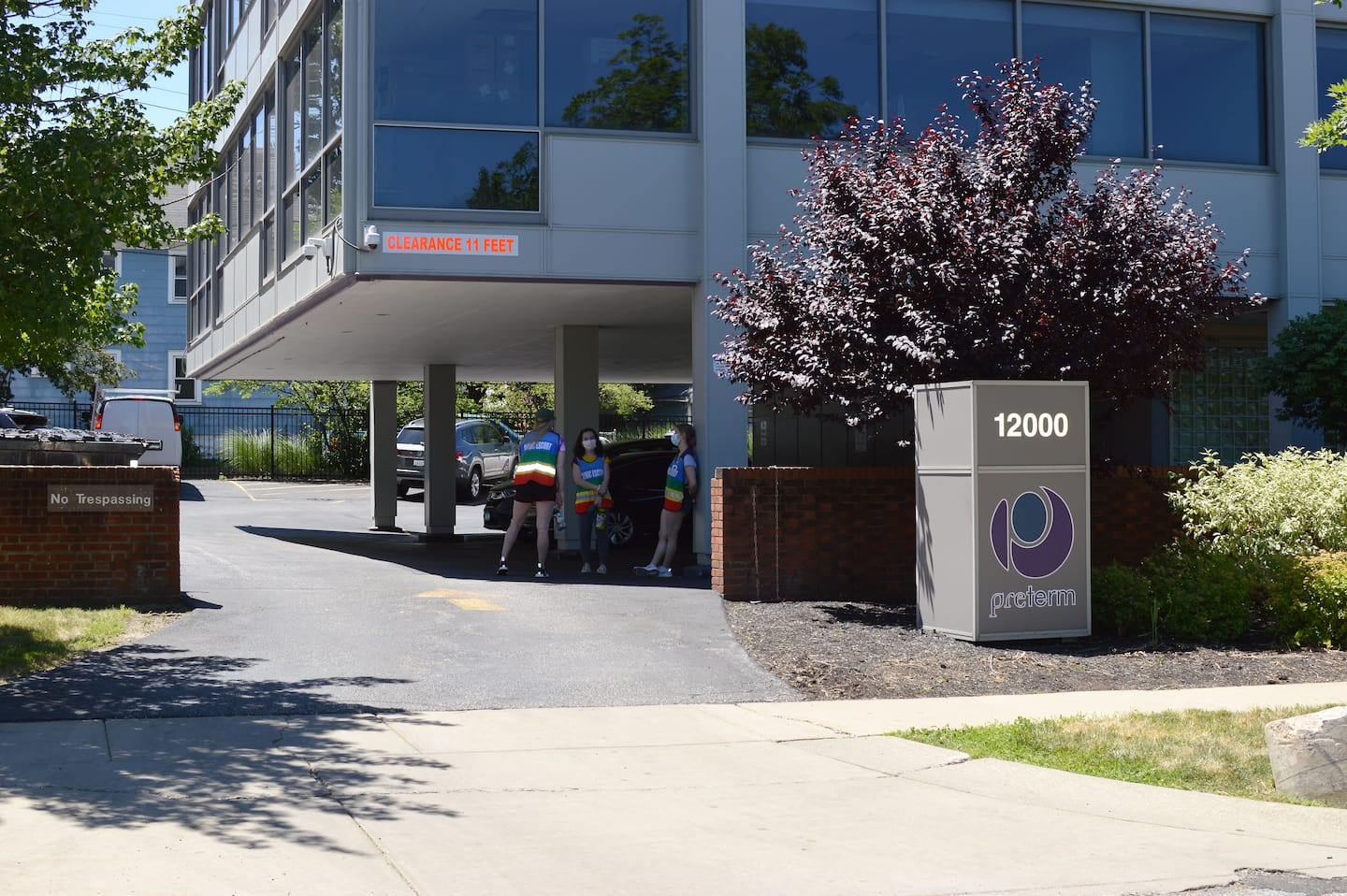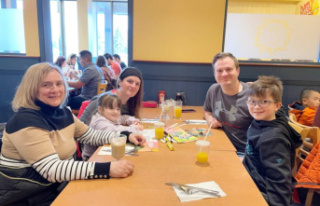CLOVELAND | Clinic workers in Ohio are pulling out all the stops to help more than 800 women desperate to have their abortion appointments canceled due to a change in law in that Republican state.
• Read also: Abortion: stars speak out
• Read also: Local clinics ready to welcome them
• To read also: Revocation of the right to abortion: wave of support for American women
“Friday evening, until 11 p.m., we had to call dozens of patients to tell them that they could not have their appointment the next day. You could feel their panic and their distress. It was horrifying,” drops tears in her eyes and constriction in her throat, Dr. Sri Thakkilapati, director of the Preterm Abortion Clinic, located in Cleveland, Ohio.
On Friday, June 24, the dreaded decision to overturn the historic Roe v. Wade, who legalized abortion in the country, was taken down by the United States Supreme Court. To become binding, this decision still had to be subject to a legislative amendment by the states.
And Ohio didn't skimp. Six hours later, women in Ohio could no longer have abortions beyond six weeks of pregnancy or as soon as heart movement can be detected by ultrasound.
Already nine states have followed suit. Some allow exceptions, but not in Ohio. Rape or incest; women cannot have an abortion.
And even though everyone who works at the Preterm clinic knew the ax was going to fall, the speed at which everything changed had the effect of an earthquake, say several employees who are trying to stay strong.
Since Friday, nearly 90% of appointments have had to be canceled, says the director who is unable to stop working as there is so much to do.
"Today alone we had to tell over 80 women that they will not be able to have an abortion and will have to go to another state to have this operation or be forced to become pregnant," he added. she, while a dozen women are waiting to see a doctor in the small waiting room.
Create a network
For the past four days, each member of the Preterm team has been doing what they can to find clinics in states where abortion remains legal, in order to send their patients there.
“We have one who has just accepted! “, rejoiced an employee on entering Dr. Thakkilapati’s office before hugging him to celebrate this “victory”. Each piece of good news is enough to bring smiles back as the obstacles pile up for many.
For the moment, it is in Pennsylvania that many women will be able to go.
"But these are the women who have the means, the time, the money or the possibility of freeing up a whole day to do this", explains the director of the organization which was founded in 1974, a few months after Roe v. Wade was adopted nearly 50 years ago.
Vulnerable
Nearly half of the patients at this clinic use financial aid to have an abortion and about a third live below the poverty line. It is therefore not always easy to travel to another state to have an abortion.
The number of places is also likely to become limited with the sudden influx of women to states that still allow abortion.
No one counts their hours to allow as many women as possible to be examined in order to be fixed on what awaits them.
"We know that this decision will affect the weakest, so even if we are devastated, we have no choice but to continue to fight for them", drops a doctor before rushing into a room of examination with a young woman.
And even though dozens of anti-choice protesters continue to plant themselves outside the clinic every weekend to gloat over the ruling of the nation's highest court and intimidate women who come for abortions, the team knows that she will not be discouraged, on the contrary.
CLOVELAND | The revocation of the right to abortion across the country is pressuring many women to urgently seek contraception in fear that the Supreme Court will also make it illegal.
"As of Friday, a lot of women have been inquiring and wanting to know when they can get an IUD, the pill, or even tubal ligations as soon as possible because they're afraid that's the next thing to go missing here in Ohio," is supporting Dr. Anita Somani, a gynecologist and candidate for Democrat representative in the state government.
Choose quickly
Since June 24, Ohio has immediately put very strict rules preventing access to abortion for women who have been pregnant for six weeks or whose fetus presents with a cardiac movement.
“Most women don’t even know they are pregnant at the time! So to be sure of not having to experience this stress, some are now going to irreversible means, ”explains Dr. Somani.
"It's scary to see that now, women and young girls are being forced to choose their contraception very quickly rather than taking their time to make a decision," she laments.
CLOVELAND | It will again be marginalized women who will be the first victims of the reversal of the legalization of abortion by the Supreme Court of the United States, deplore many organizations.
“It is a decision that will be particularly damaging for women who are marginalized because of their gender, their skin color, or their income. The overthrow of Roe c. Wade will further exacerbate this marginalization,” says Paige Robar, director of communications at the YMCA of Cleveland, Ohio in the United States, whose organization aims to help the most vulnerable women.
As in many American states, the reversal of the judgment that legalized abortion in the country, by the Supreme Court of the United States changed everything in Ohio.
It only took a few hours, Friday June 24, for women in this northeastern state to lose the right to have an abortion after six weeks of pregnancy or as soon as a heart movement can be detected by ultrasound. .
Obligation and criminalization
Even if abortion remains legal in Ohio, the time limit will only force women to travel hundreds of miles to access it, laments Dr. Anita Somani, gynecologist and candidate for Ohio State Representative House.
“There will be many who will be forced to keep the baby, others will surely die because of their dangerous pregnancy and others will find illegal and dangerous ways to abort. This will have devastating effects,” she warns.
And it will be the most vulnerable women who will pay the price for this new law, adds lawyer Barbara Luke, also a candidate for the position of representative of the Ohio State House in another county.
“It is always women of color and the poorest women who are the greatest victims of these decisions,” she laments.
It will also have the effect of criminalizing people who have had illegal abortions, once again risking an overrepresentation of minorities in prisons, says Ms Luke.













